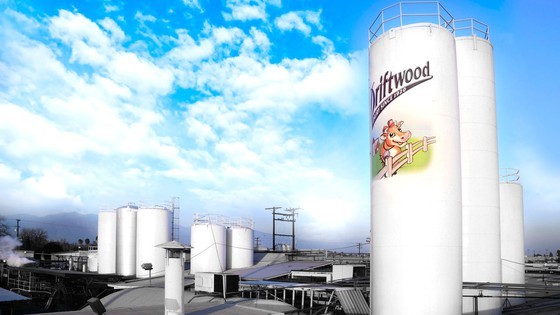
Analysis by the Ministry of Planning and Investment showed that overseas investment capital of Vietnamese enterprises has increased rapidly from US$350 million in 2017 to $432 million in 2018 and nearly $500 million in 2019. The total overseas investment of Vietnamese enterprises so far has exceeded $22 billion.
Last year alone, 148 new projects were granted licenses with total investment capital of nearly $400 million and 29 times that existing projects adjusted investment capital with additional capital of more than $100 million. Of which, wholesale, retail and repair of automobiles, motorbikes and engine-driven vehicles sector attracted most investment with $118.2 million, accounting for 25.8 percent of total investment. The rest mainly concentrated on sectors that Vietnam is having any advantages in global market, such as agro-forestry-aquatic sector with $65.6 million, accounting for 14.3 percent.
Real estate trading activities also accounted for a large proportion of investment capital with investment capital reaching $59.3 million, accounting for 12.9 percent when Vietnamese enterprises have started to spread to neighboring markets. Remarkably, although Vietnam has not been highly recognized for high-tech development, total investment capital in science and technology in foreign countries has reached $60 million, accounting for 13.1 percent.
Regarding this matter, Ms. Bui Thi Huong, CEO of Vinamilk, shared that in 2013 the company bought 70 percent stake of the US plant, Driftwood. After that, it invested $10 million more and raised its ownership ratio in the plant to 100 percent. After five years, total revenue of Vinamilk from the Driftwood factory exceeded $116.2 million by 2018.
In addition, Vinamilk is holding 100 percent stake of Angkor dairy factory in Cambodia, 22.8 percent stake of Miraka dairy factory in New Zealand and has some subsidiaries in Poland. Currently, dairy products of Vinamilk have been exported to 50 countries with export turnover of nearly $2.5 billion.
The fact that Vietnamese enterprises invest abroad not only has helped to expand consumption market share but also offered opportunities to quickly change production technology and approach science and technology of developed countries in the world. On the other hand, investing abroad helps Vietnamese enterprises to improve competitiveness as they will avoid tariff barriers and non-tariff barriers that many countries have been putting up, especially amid the context that several countries have signed free trade agreements with each other. Especially, it will help Vietnamese enterprises to get the most out of the advantages to develop national specific products.
However, according to the representative of the Food and Foodstuff Association of Ho Chi Minh City, overseas investment activities of Vietnamese enterprises are considered to contain many risks and challenges because of the gap in culture, law and environment between Vietnam and other countries. These will possibly lead to trade and investment disputes, affecting the interests of Vietnamese enterprises.
Last year alone, 148 new projects were granted licenses with total investment capital of nearly $400 million and 29 times that existing projects adjusted investment capital with additional capital of more than $100 million. Of which, wholesale, retail and repair of automobiles, motorbikes and engine-driven vehicles sector attracted most investment with $118.2 million, accounting for 25.8 percent of total investment. The rest mainly concentrated on sectors that Vietnam is having any advantages in global market, such as agro-forestry-aquatic sector with $65.6 million, accounting for 14.3 percent.
Real estate trading activities also accounted for a large proportion of investment capital with investment capital reaching $59.3 million, accounting for 12.9 percent when Vietnamese enterprises have started to spread to neighboring markets. Remarkably, although Vietnam has not been highly recognized for high-tech development, total investment capital in science and technology in foreign countries has reached $60 million, accounting for 13.1 percent.
Regarding this matter, Ms. Bui Thi Huong, CEO of Vinamilk, shared that in 2013 the company bought 70 percent stake of the US plant, Driftwood. After that, it invested $10 million more and raised its ownership ratio in the plant to 100 percent. After five years, total revenue of Vinamilk from the Driftwood factory exceeded $116.2 million by 2018.
In addition, Vinamilk is holding 100 percent stake of Angkor dairy factory in Cambodia, 22.8 percent stake of Miraka dairy factory in New Zealand and has some subsidiaries in Poland. Currently, dairy products of Vinamilk have been exported to 50 countries with export turnover of nearly $2.5 billion.
The fact that Vietnamese enterprises invest abroad not only has helped to expand consumption market share but also offered opportunities to quickly change production technology and approach science and technology of developed countries in the world. On the other hand, investing abroad helps Vietnamese enterprises to improve competitiveness as they will avoid tariff barriers and non-tariff barriers that many countries have been putting up, especially amid the context that several countries have signed free trade agreements with each other. Especially, it will help Vietnamese enterprises to get the most out of the advantages to develop national specific products.
However, according to the representative of the Food and Foodstuff Association of Ho Chi Minh City, overseas investment activities of Vietnamese enterprises are considered to contain many risks and challenges because of the gap in culture, law and environment between Vietnam and other countries. These will possibly lead to trade and investment disputes, affecting the interests of Vietnamese enterprises.
 Viettel invests in the Halotel mobile network in Tanzania.
Viettel invests in the Halotel mobile network in Tanzania.
Commercial counselor of Vietnam in the US said that, for instance, for intellectual property protection of products, export enterprises, as well as manufacturing enterprises, must register for brand ownership at the US Patent and Trademark Office (USPTO). However, currently, only 1,938 Vietnamese brand names have been registered with the USPTO, of which, 1,090 brand names are active.
Vietnamese enterprises have not paid enough attention to legal issues when investing as well as exporting to foreign markets in general and to the US market in particular. It is the reason why there are many cases that Vietnamese brand names are owned by Thai, Chinese and Korean enterprises.
Moreover, the capacity of investment capital of Vietnamese enterprises remains limited so taking root for intensive and long-term investment as well as expanding market share at host countries still faces several difficulties. In addition, in terms of State management, the legal corridor has not been completed, especially the investment risk-sharing policy.
According to economic experts, to promote investment abroad, Vietnamese enterprises need to be cautious. Initially, they should establish a joint-venture or a business association before taking into account owing 100 percent stake. This is also the secret for the success and growth of transnational enterprises in the world. The Government needs to build and complete legal framework and policy on overseas investment. In which, it is necessary to simplify the overseas investment license registration and issuance procedure. Moreover, the investment in sectors, including banking, insurance, education and health care should be expanded. The category of projects that are especially encouraged for investment needs to be transparent. Then, it will create momentum for Vietnamese enterprises to advance further in the international arena.
Vietnamese enterprises have not paid enough attention to legal issues when investing as well as exporting to foreign markets in general and to the US market in particular. It is the reason why there are many cases that Vietnamese brand names are owned by Thai, Chinese and Korean enterprises.
Moreover, the capacity of investment capital of Vietnamese enterprises remains limited so taking root for intensive and long-term investment as well as expanding market share at host countries still faces several difficulties. In addition, in terms of State management, the legal corridor has not been completed, especially the investment risk-sharing policy.
According to economic experts, to promote investment abroad, Vietnamese enterprises need to be cautious. Initially, they should establish a joint-venture or a business association before taking into account owing 100 percent stake. This is also the secret for the success and growth of transnational enterprises in the world. The Government needs to build and complete legal framework and policy on overseas investment. In which, it is necessary to simplify the overseas investment license registration and issuance procedure. Moreover, the investment in sectors, including banking, insurance, education and health care should be expanded. The category of projects that are especially encouraged for investment needs to be transparent. Then, it will create momentum for Vietnamese enterprises to advance further in the international arena.
Currently, there are 31 countries and territories having recorded investment capital from Vietnamese enterprises. Australia was the leading market, followed by the US, Spain, Cambodia and Singapore ... Many groups, corporations and enterprises have had large registered overseas investment capital, such as Vietnam Oil and Gas Group, Viettel Group, Vietnam Dairy Products Joint Stock Company (Vinamilk), BIDV Bank, Hoang Anh - Gia Lai Joint Stock Company, TH True Milk Group and Vietnam National Chemical Group.
























